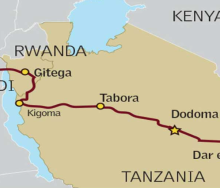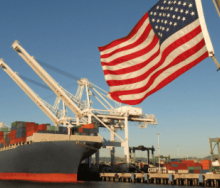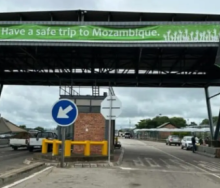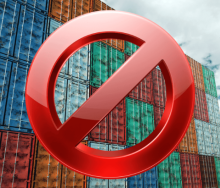The impact of last week’s insurrection, which resulted in the temporary closure of the Port of Durban and destruction of trucks and warehouses, has left transporters, shippers and producers reeling.
Among the casualties was a shipment of citrus worth R15 million, which was destined for the Port of Durban, and was destroyed in the violence that brought traffic to a standstill as mobs set fire to objects on main highways such as the N3 and N2.
The citrus industry is, however, addressing the issue with the urgency it deserves.
Citrus Growers’ Association (CGA) CEO Justin Chadwick writes in his weekly newsletter that all industry role-players – among them Transnet, cold stores, container depots, transport carriers, PPECB, the Department of Agriculture, Land Reform and Rural Development (DALRRD), and growers - meet every morning to understand the situation on the ground.
The results of the meetings are summarised in a situation report and circulated as widely as possible. However, the best way to get this report hot off the press is to monitor the CGA website www.cga.co.za, says Chadwick, who has urged extreme caution as trade routes like the N3 begin to open.
“We need to open up the citrus trade lanes sequentially; there is still fruit in the cold stores that needs to be cleared, and there are many vessels outside Durban port that still need to discharge and load. This is going to take time and all available resources to clear. Human lives are the priority, and whilst we applaud the urgency with which all role players in the chain want to return to full productivity, no port terminal, cold store, container depot or harbour carrier is going to put their staff at risk.”
Chadwick has advised all growers to clear all fruit already being staged on trucks, as well as what is on the packhouse floor and in urgent need of going under cooling. “But please don’t add further pressure to an already severely compromised port precinct. It is essential that you make sure that your receiving facility in KZN has space to receive your vehicle on arrival. Otherwise you are going to move the problem from packhouse to port – your vehicle is far safer where it is now than in KZN.”
He’s also advised growers, where possible, to stop harvesting for a period - maybe a week - or at the very least slow down their packing tempo until the situation is normalised.
“We need to work as an industry in this regard – otherwise the port will be completely gridlocked and it will be our fault.”
And as uncertainty surrounds the future fluidity of the Port of Durban, the CGA is working with DALRRD and PPECB to ascertain alternative ports for fruit from the north – in particular Maputo and Cape Town, although he cautions against transferring the problem to CT.
The organisation is also meeting with DALRRD regarding re-inspections to minimise disruptions while still complying with phytosanitary regulations.













